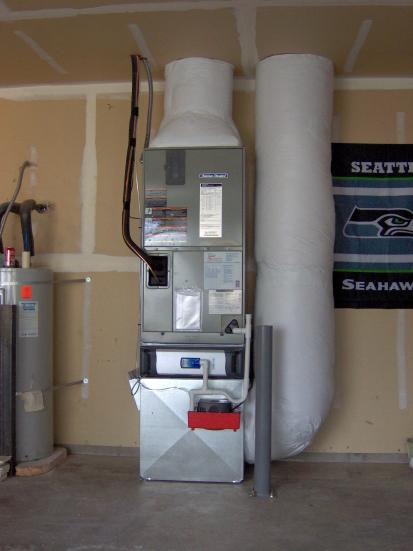The Ultimate Overview to Heater Installation for a Cozy Home
Heating system setup is a crucial aspect of keeping a comfy home environment, specifically throughout the chillier months. As you consider these variables, the concern remains: what actions can you take to ensure your furnace offers you well for years to come?
Sorts Of Heaters

Gas furnaces are the most typical selection as a result of their efficiency and lower operational expenses. They make use of all-natural gas or propane, offering quick home heating and regular efficiency, making them ideal for chillier climates.
Electric heating systems, while usually easier to install and maintain, tend to have higher operational expenses. They are commonly preferred in locations where gas solution is inaccessible or for homes with existing electrical framework.
Oil heaters, though much less usual today, continue to be a viable option in particular areas. They shed home heating oil, which can be beneficial throughout colder months, however their dependence on oil shipment presents prospective difficulties.
Furthermore, there are high-efficiency designs offered across these types, which can significantly lower power intake and energy expenses - furnace installation. Ultimately, understanding these heater kinds will certainly assist property owners choose a system that straightens with their home heating needs, budget, and energy choices
Selecting the Right Size
Picking the ideal dimension for a furnace is crucial to ensuring optimum efficiency and energy performance. A small furnace will certainly have a hard time to maintain comfortable temperature levels throughout the cold months, bring about boosted deterioration, greater power bills, and possible system failure. Alternatively, a large furnace might cycle on and off too regularly, leading to ineffective heating and uneven temperature level distribution within the home.
To figure out the appropriate heater size, an estimation called the Guidebook J tons estimation ought to be executed. This process reviews different variables, including the square video of the home, insulation levels, window dimensions, and local environment problems. This extensive evaluation ensures that the heating system meets the particular home heating demands of the area.

Installment Process Summary
In terms of materials, you will certainly need ductwork, insulation, and sealing tape to ensure ideal airflow and power efficiency - furnace installation. It is likewise vital to have a brand-new furnace filter accessible, together with venting products, such as PVC pipe or metal flue, relying on the kind Get More Information of heater being installed
Security tools, consisting of handwear covers, safety glasses, and a face mask, is likewise important to shield versus dirt and debris during setup. Having all these devices and products easily offered not only simplifies the procedure however likewise improves the security and efficiency of the heating system installment.
Upkeep Tips for Durability
To guarantee the durability of your heater, it is vital to carry out a normal maintenance timetable that addresses essential elements of the system. Beginning by changing or cleaning up the air filter every one to 3 months, as a clogged up filter can restrict air flow and decrease effectiveness. In addition, inspect and clean the blower assembly to avoid dust build-up that can prevent performance.
Next, inspect the thermostat setups and recalibrate if required to make certain accurate temperature guideline. Evaluate the ductwork for leakages or blockages, as this can result in energy loss and irregular home heating. Routinely lube the electric motor and bearings according to the supplier's recommendations to reduce deterioration.
Specialist assessments should occur every year, where a certified service technician can assess the heating system's general problem, look for gas leakages, and make certain that safety and security attributes are operating appropriately. Finally, consider installing a programmable thermostat to optimize energy use and maintain regular home temperature levels. By adopting these upkeep techniques, you can boost your heating system's effectiveness, extend its lifespan, and ultimately enjoy a comfy and comfy home atmosphere.
Final Thought
